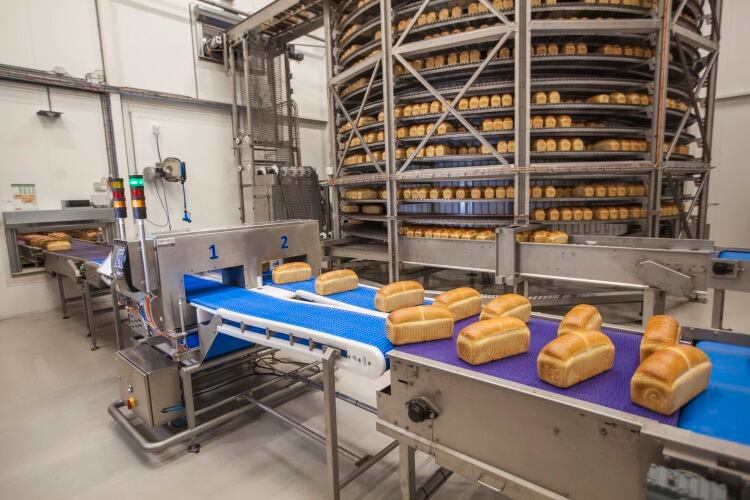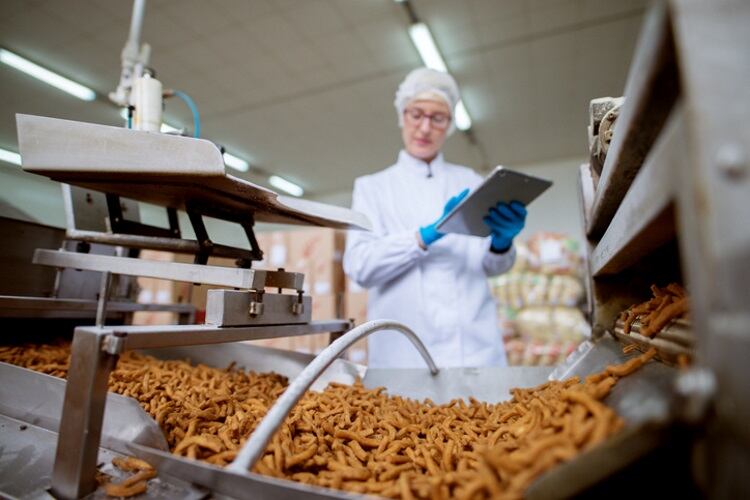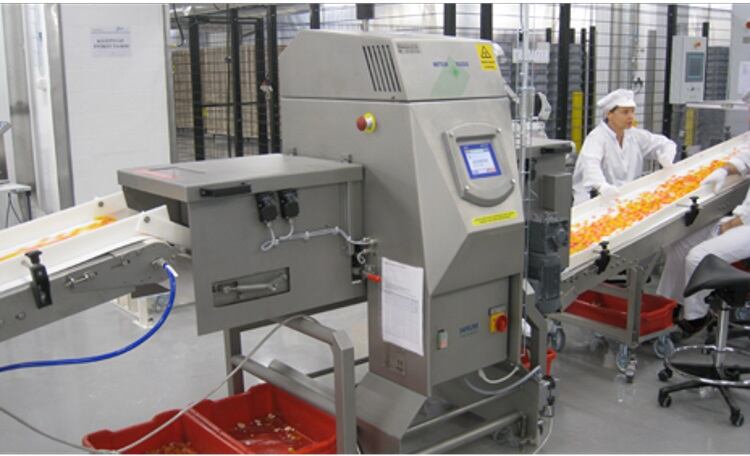According to the UK-based supplier of metal detectors, metal detection systems, checkweighers and X-ray, Borgesuis has certainly gained from its helping held in accurately inspecting 3,600 loaves per hour.
The family-owned business has been baking breads since 1895, when Goedhart Borgesius established himself as a local baker in Wildervanck. Today, the company’s products can be found in more than 80% of Dutch households, operating nine bakeries across the Netherlands producing an average of 800,000 bakery products daily.
It was also one of the first to install Fortress Technology’s space saving, multi-lane, multi-aperture metal detector systems.
Going automated
Borgesuis opted for a twin lane conveyor that feeds product in single file through two smaller apertures encased within a single Stealth metal detector.
Before the installation, bakery operatives manually loaded bread loaves onto a conveyor for inspection by a single metal detector. It was a slow, labour-intensive process, causing packing bottlenecks at the factory.
Rather than commission one large metal detector to span two lanes, the company wanted to identify metal contaminants in the individual line and separate rejects. However, installing two metal detectors would have prohibited it from running two conveyors so closely together.
Sensitivity was also key – Borgesuis requested a minimum of 1.8 mm ferrous, 2.8 mm non-ferrous and 4.0 mm stainless steel.
Fortress installed a twin aperture Stealth metal detector, mounted across two conveyor lines. Each aperture measures just 200mm by 450mm and the loaves pass right through the centre point, allowing the system to better cope with orientation and product effect. The dedicated aperture for each lane is also more sensitive to smaller metal particles, detecting 0.8 mm ferrous, 0.8 mm non-ferrous and 1.2 mm stainless steel.
To reduce product effect, the bread loaves – which are all baked on Borgesuis’ premises – are inspected individually after rotating around the expansive cooling tower and before packaging.
A winning situation
Until now, said Fortess’ European sales director Phil Brown, bakeries and food manufacturers wanting a multi-lane system to inspect items had limited options.
“You could either install a much larger single aperture spanning all lanes, or insert standalone metal detectors between the conveyors. Neither option suited this specific application at the Borgesius bakery, as it would have meant a bulkier machine, multiple systems to maintain and a wider footprint, or conceding on metal detection sensitivity.”
To maintain a small footprint, the metal detector was integrated with a new section of conveyor (measuring 1.7m by 5m) that slots alongside the bakery’s existing cooling tower. This bespoke conveyor system splits into two infeed lanes. If the metal detector identifies a contaminated loaf, the conveyor on that lane dips, dropping the bread loaf into an individual lockable BRC-approved reject bin for each lane.
Borgesuis is now able to inspect different products side by side, boosting efficiency and total cost of ownership. Within 12 hours of installation by Dutch manufacturer Jansen Control Systems, the bakery was running at full capacity, accurately inspecting 14,000 loaves per shift.



